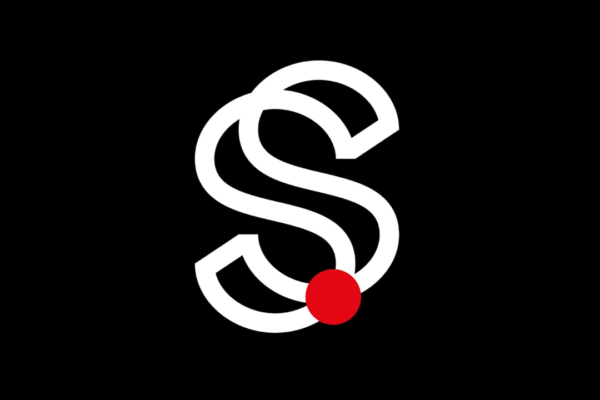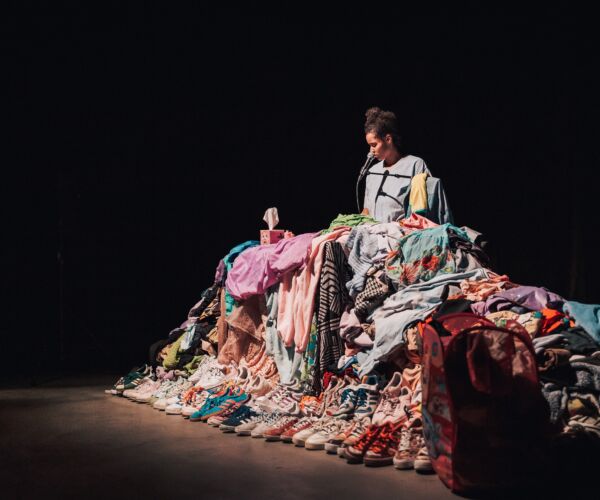
Radio
The radio course focuses on the art of storytelling in audio. In the form and for the platform where that story is best told: a podcast, a radio program, a sound installation, a fiction piece, a documentary, an audio guide,...
The bachelor of radio forms polyvalent audio makers. Radio courses involve developing an original program idea to its realization in the studio. Documentary involves making a short report or telling a longer subjective story. We also offer a package of classes dealing with sound in a more abstract way: sound installations, audio art, soundscapes,... Students are introduced to radio fiction and realize a radio play. Not only are students introduced to these four contexts, they are also encouraged to cross their boundaries throughout their course.
Students are introduced to all facets of radio making: they master the medium technically and can use it creatively. During the program, students discover the possibilities of this fascinating medium and find their own style and voice within it. In the master this individual artistic research is continued in an atmosphere of deepening and research. The program invests in independent thinking, artistically educated and socially aware radio makers.
The teachers of the program are often in the heart of practice. They pass on their knowledge and experience in concept development, editing and research, radio advertising, technical realization, voice use and many other aspects of radio/audio.
All classes are in Dutch.


Bachelor
1st year
Your training begins with listening: to the radio, to podcasts, and to the sounds around you.Next comes exploration. What does sound tell you, and how can you tell your own story through sound?You’ll learn to understand and use your voice. You’ll learn to make technically sound recordings, edit them, and build your creations into a report, a radio broadcast, a soundscape, and more.You’ll be introduced to scriptwriting and gain a solid foundation in music history. The course ‘individual artistic research’ provides you with the freedom to experiment throughout the three years.
2nd year
In the second bachelor year, you’ll delve deeper into specific contexts: fiction, documentary, radio, and sound art. You’ll gain a more in-depth understanding of the repertoire and have the opportunity to work hands-on during various creative workshops. The concept development course provides you with essential tools and challenges you to critically reflect on your work. Alongside voice training, you’ll also work on recording voice-overs. In the cross-disciplinary workshop, you’ll collaborate with students from other programmes outside the school, at a socio-artistic space in Brussels.
3rd year
In the third bachelor year, you will participate in three intensive workshops, with mentors guiding you in creating an audio piece in a context of your choice.In addition, you can choose several elective courses, focusing on advanced sound editing, music creation, performing your own text on stage, contributing to a radio project in the Haren prison, or developing and realising a creative advertisement. You’ll also have the option to specialise as a voice professional or voice director. Finally, you’ll learn how to organise yourself as an independent audio creator from a business perspective
Master
In the master’s programme, you engage in dialogue with international creators through festivals and masterclasses. During an eight-week internship, you will become familiar with the professional field. A significant part of the year is dedicated to your master’s thesis, the final stage of your ‘individual artistic research’. You will receive individual guidance from a supervisor throughout this process.By the end of the four-year programme, you will have become an accomplished audio creator, capable of telling fictional or documentary stories through sound, developing and realising artistic sound concepts, and fully engaged with the world, having found your own artistic voice. Your work is distinctive, socially engaged, and meaningful to your audience.
Short program
If you already have a relevant bachelor's or master's degree and the necessary radio, audio or podcasting experience, you can take part in the admission tests for a shortened track. If you pass, we will put together an individual pathway of about 60 credits, taking into account your previous course and your interests and ambitions. This shortened track takes one year. Afterwards you can follow the master.ECTS sheets
If you want detailed info on the subjects (assessment, examination formats...), please visit our study guide where you can find all ECTS sheets of our programmes.
Admission test
To start this programme, you must first pass an artistic admission test. The admission test consists of three parts: a dossier, an intake or selection interview and a workshop week. Read more about the admission tests here.
Quality education
Erasmushogeschool Brussel pursues quality education and continuously develops its programs to meet (inter)national quality characteristics. EhB puts maximum effort into developing a culture of quality and uses its own quality direction as a foundation for quality education.Various instruments guarantee the strengthening and safeguarding of the educational quality of this program:- In 2016, a program accreditation took place for the Bachelor of Arts in audiovisual arts. Read the rapport.
- The Dutch-Flemish Accreditation Organization (NVAO) decided to accredit this program for the period 2016 to 2024 in the accreditation decision.
The Training in Figures website of the Flemish government provides information about the profile of this program such as who follows this program, how long students take to obtain their degree, etc.Read more about quality assurance within EhB.